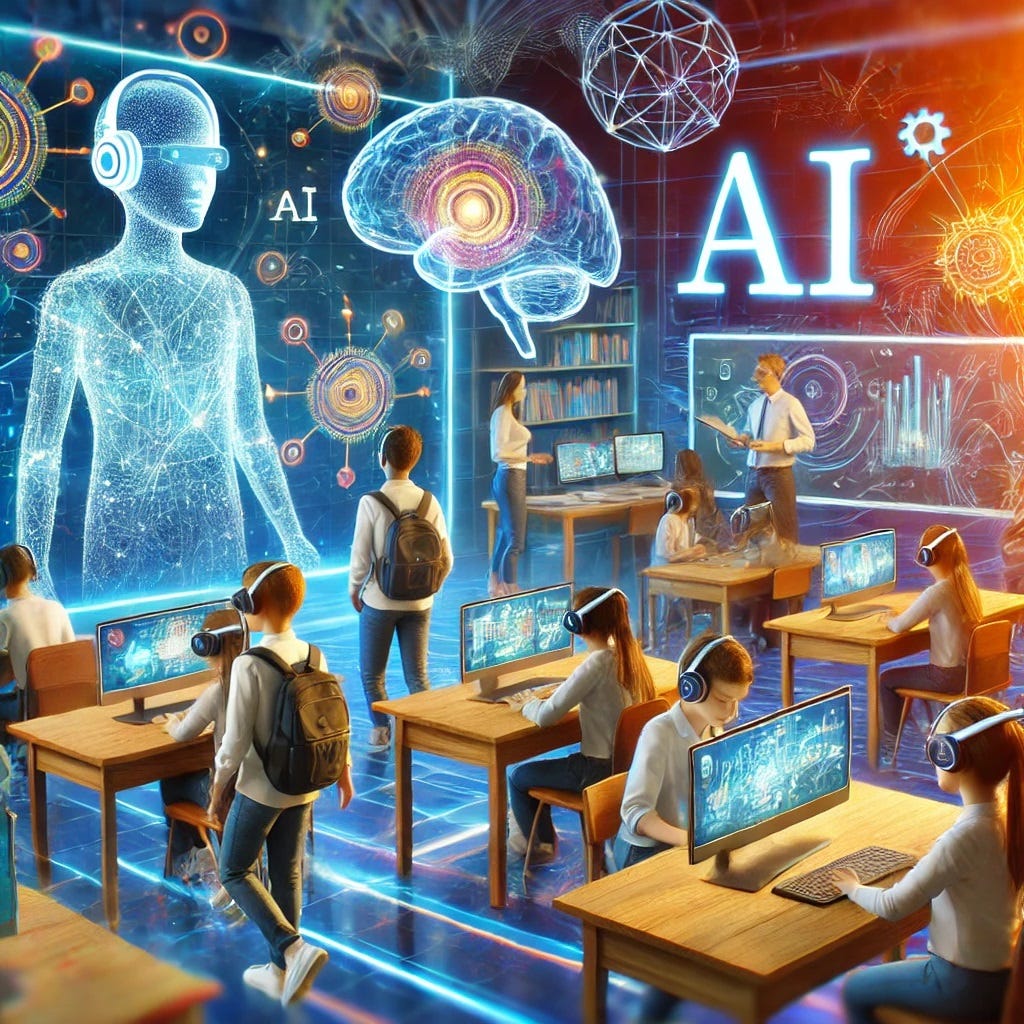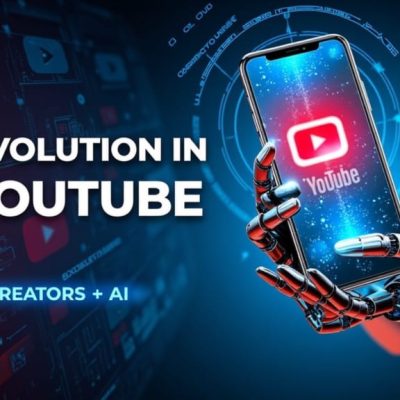Artificial Intelligence (AI) is revolutionizing various industries, and education is no exception. With advancements in AI-powered tools and technologies, learning is becoming more personalized, efficient, and accessible. From smart tutoring systems to automated grading and virtual learning assistants, AI is reshaping the way students learn and teachers teach. In this blog, we will explore How AI is Transforming Education: The Future of Learning and the benefits it brings to students, educators, and institutions.

1. Personalized Learning with AI
One of the biggest advantages of AI in education is personalized learning.
✔️ Examples include platforms like Coursera, Khan Academy, and Duolingo.
✔️ Smart Tutoring Systems: AI tutors provide real-time feedback and support in subjects like math, science, and languages.
✔️ AI-Powered Learning Assistants: Chatbots and virtual assistants help answer student queries and guide them through coursework.
2. AI-Powered Virtual Classrooms
How AI is Transforming Education: The Future of Learning
The rise of online education has led to the development of AI-driven virtual classrooms. These classrooms use AI to create a more interactive and engaging learning environment.
✔️ Speech Recognition & Language Processing: AI tools like Google’s Speech-to-Text help students with disabilities participate in virtual classes.
✔️ Automated Attendance Tracking: Facial recognition and AI algorithms track student presence in online classes.
✔️ AI-Powered Interactive Learning: AI integrates with AR (Augmented Reality) and VR (Virtual Reality) to create immersive educational experiences.

How AI is Transforming Education: The Future of Learning
3. AI for Automated Grading & Assessment
Grading exams and assignments manually is time-consuming. AI simplifies this process by automating grading and assessments, saving educators time and ensuring fair evaluation.
✔️ Instant Grading for Objective Tests: AI evaluates multiple-choice and fill-in-the-blank questions instantly.
✔️ AI-Powered Essay Scoring: Tools like Grammarly and Turnitin analyze grammar, sentence structure, and content quality.
4. AI Chatbots for Student Support
AI chatbots are transforming student support services by offering instant responses to queries and providing round-the-clock assistance.
✔️ 24/7 Student Assistance: AI chatbots answer common questions related to courses, admissions, and assignments.
✔️ AI-Powered Career Guidance: AI helps students choose courses based on their interests and future career goals.
✔️ Mental Health Support: AI-powered chatbots like Woebot offer emotional support and mental well-being guidance.
5. AI in Special Education
AI is making education more inclusive and accessible for students with disabilities.
✔️ Speech-to-Text & Text-to-Speech Tools: Helps students with hearing or speech impairments.
✔️ AI-Powered Assistive Technology: AI tools like Seeing AI help visually impaired students understand text and images.
✔️ Real-Time Translation: AI-powered translation tools break language barriers in multicultural classrooms.
6. AI in Curriculum Design & Content Creation
AI assists educators in curriculum planning by analyzing trends and suggesting optimized course structures.
✔️ AI-Based Content Generation: AI tools help create engaging course materials and quizzes.
✔️ Smart Recommendations: AI suggests additional learning resources based on student progress.
✔️ Data-Driven Insights: AI analyzes student performance data to improve course effectiveness.
7. AI for Teacher Training & Professional Development
Educators can use AI for skill development and continuous learning.
✔️ AI-Powered Training Modules: Personalized courses for teachers to enhance their teaching methods.
✔️ AI-Based Feedback: Real-time feedback on teaching performance using AI analytics.
✔️ Virtual Simulations: AI-driven simulations provide real-world teaching experience.
8. Challenges & Ethical Concerns of AI in Education
Educational institutions must ensure responsible AI implementation by addressing data privacy concerns and ensuring a balance between technology and human interaction.
Conclusion
AI is transforming education by making learning more personalized, accessible, and efficient



